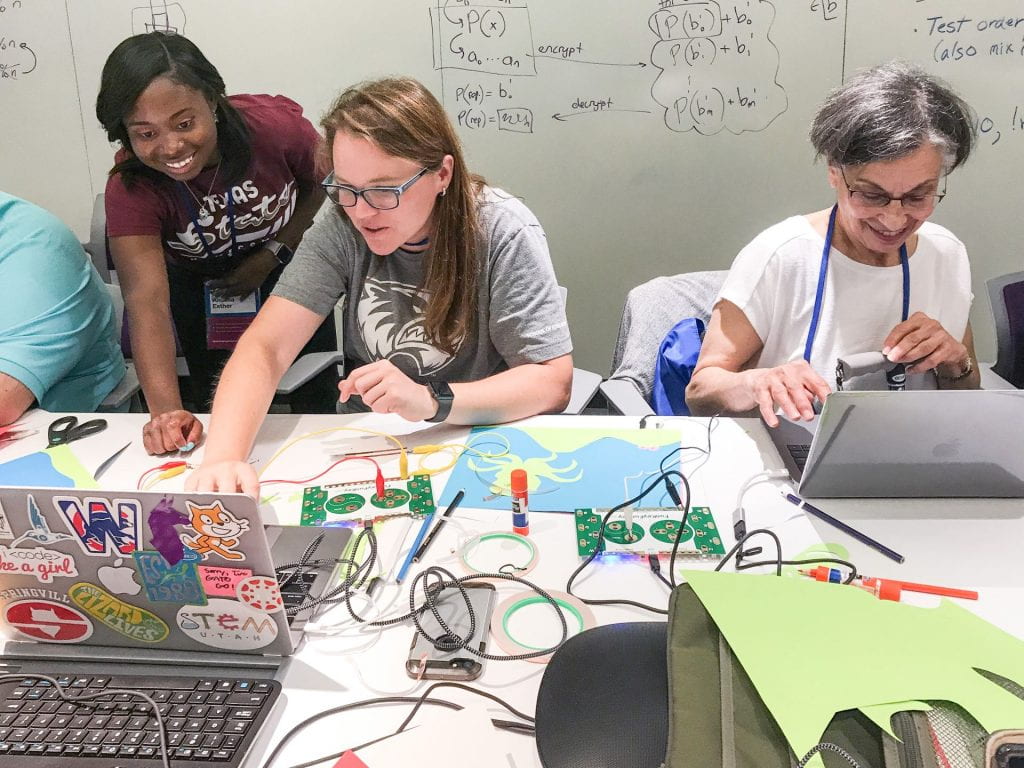Families Learning Together (FLT) is a community education project that teaches computational thinking through art, storytelling, and citizen science. FLT offers coding workshops (we call them playshops!) and maker clubs at San Marcos elementary schools, the public library, Centro Cultural Hispano de San Marcos, and teacher education workshops at the San Marcos Consolidated Independent School District, and elsewhere.
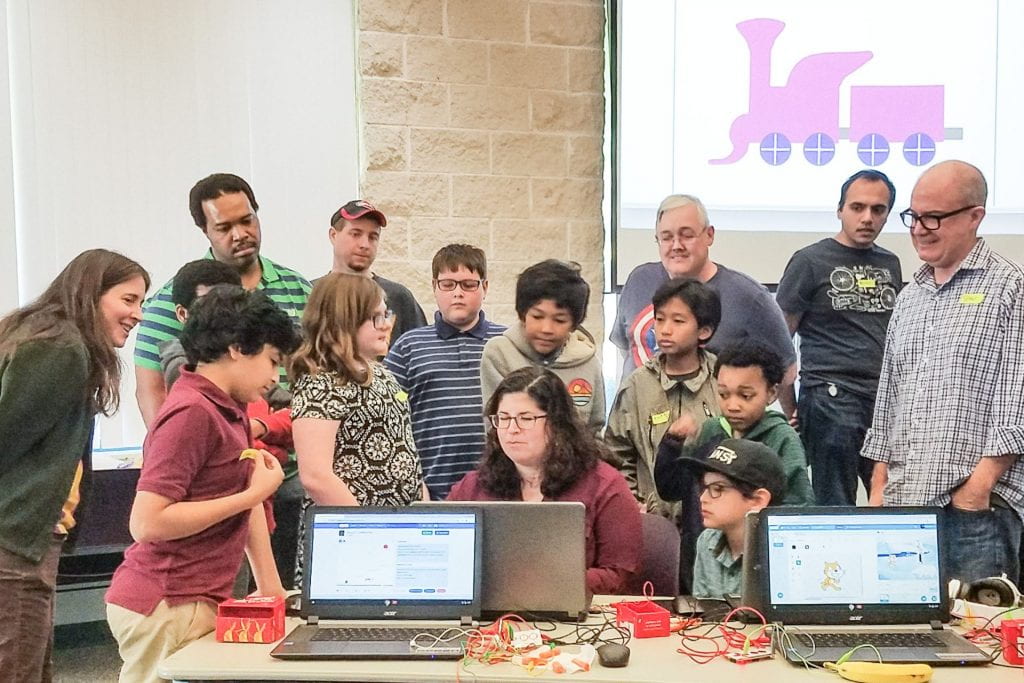
FLT expands creative computing in San Marcos by empowering students, families, and preK to 5 teachers to make meaningful stories, games, and art with computational materials.
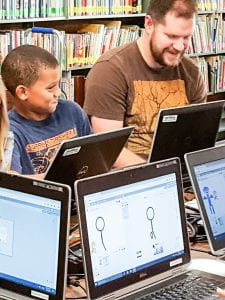
The FLT method is based on shared inquiry and problem-finding. Playshop activities include storytelling, game design, citizen science, and art making. No prior computing experience is necessary to join an FLT playshop, but a sense of curiosity and the desire to learn is essential.
FLT was started in 2016 by Dr. Sean Justice, assistant professor of art education in the School of Art & Design at Texas State University. The vision behind FLT came from his work in art and computer science education, and from his experience as an entrepreneur and commercial artist working in photography. Since switching gears to begin a career in education, Dr. Justice has focused on helping students of all ages work with computational materials as a meaningful way to make art, tell stories, play games, and do science.
FLT works with Texas State University students who want to teach 21st century creative skills. Together we’re learning to expand individual creativity to better serve our communities.
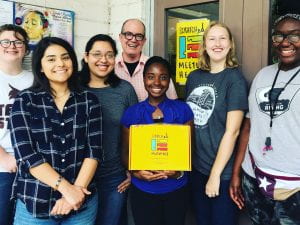
Since 2017, Texas State University students from education, computer science, history, dance, English, biology, art, and other departments have become playshop teachers. Some are complete novices in computer science themselves, at least at the beginning — but we all learn together! (See the Get Involved page to find out more.)
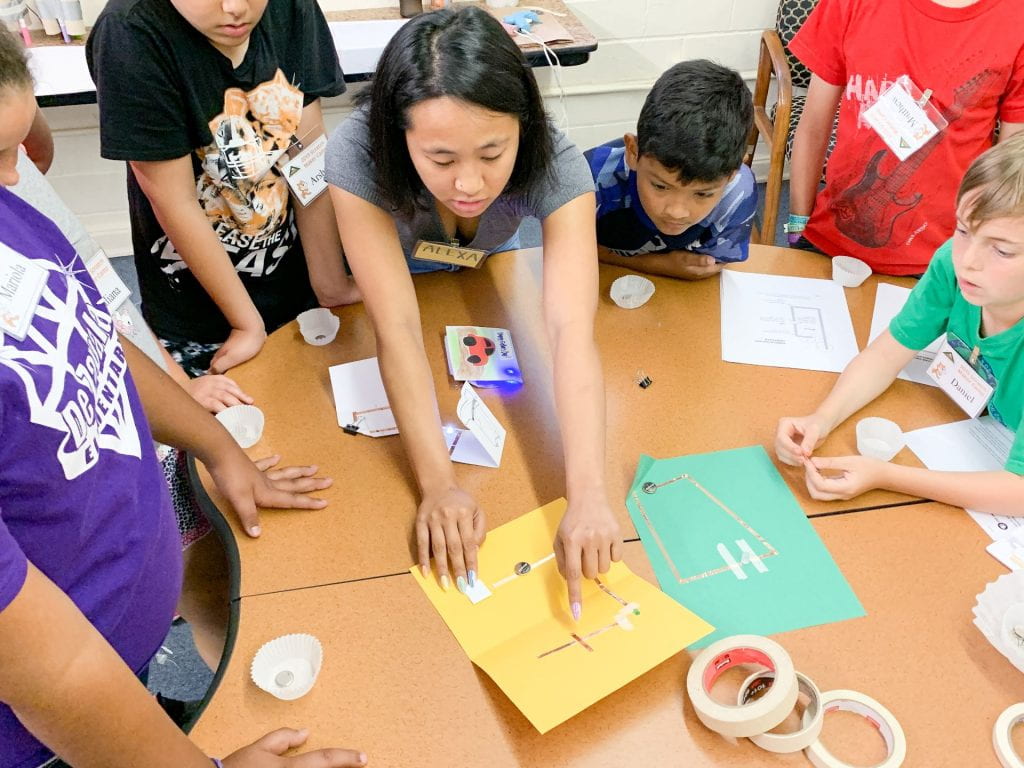
FLT believes that creative computing is a constructivist mindset that welcomes a wide variety of making and building with different tools and materials. Coding is a great place to start, but there’s a whole lot more. For instance, playshops often begin with Scratch (https://scratch.mit.edu/), a computer programming platform designed for young people at the MIT Media Lab, and then expand outward like ripples on a pond.
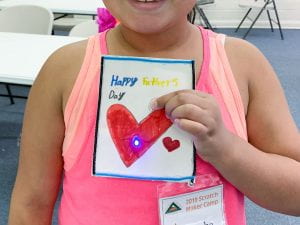
After school programs, summer camps, and online learning clubs participants make drawing machines, robots, augmented reality experiences, pop-up books, and other imaginative things—such as light-up Father’s Day cards! A favorite activity includes craft circuit collages that connect to Scratch animations, known as an interface.
No matter how much experience participants have with computer programming or computational making, even if they have no experience at all, the main criteria for having fun at an FLT playshop is the willingness to jump into the learning alongside other participants, whether elementary school students, college students, parents and grandparents, or teachers.
